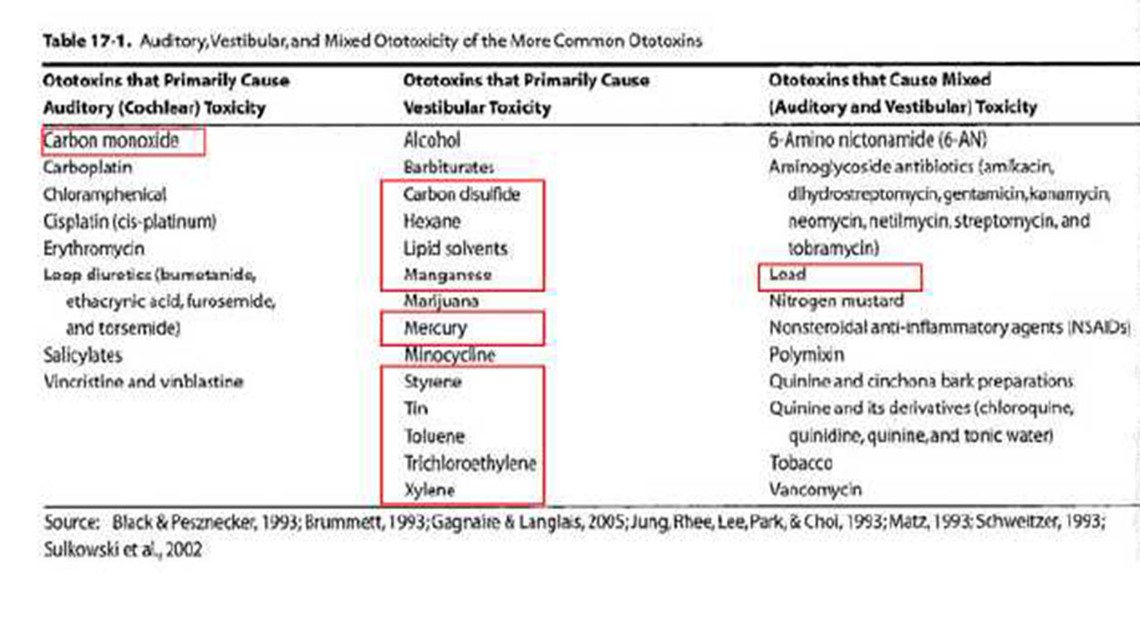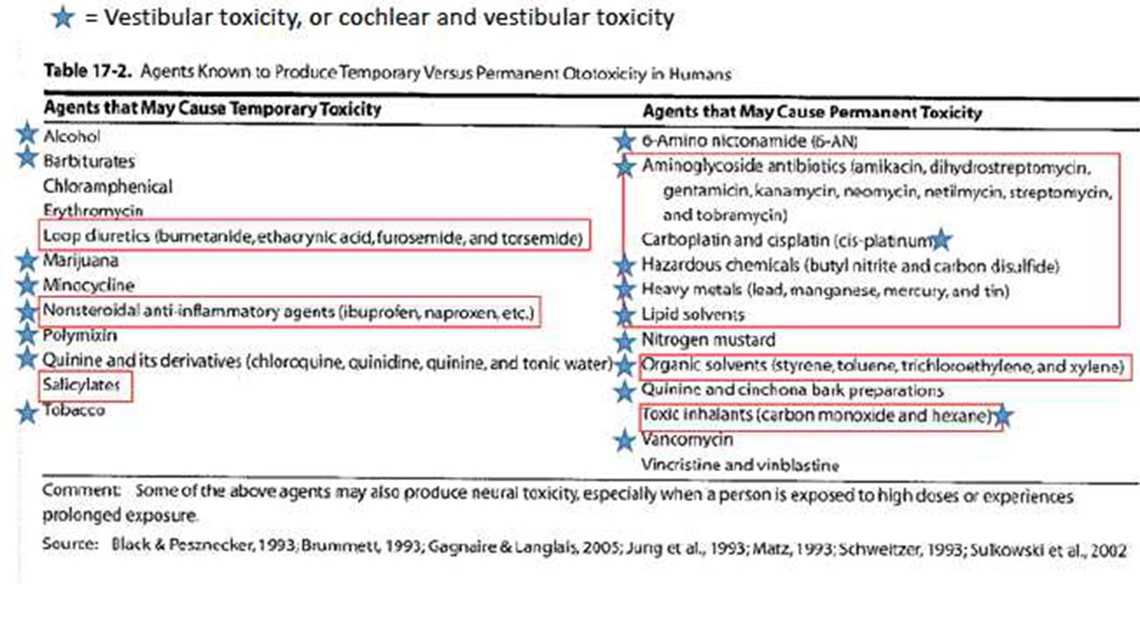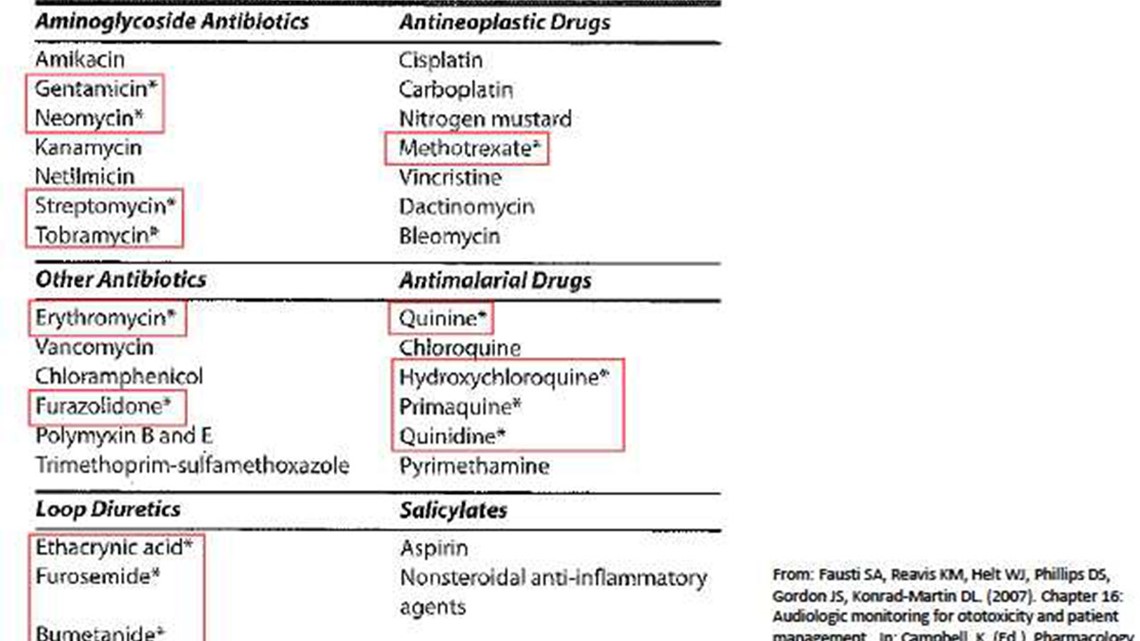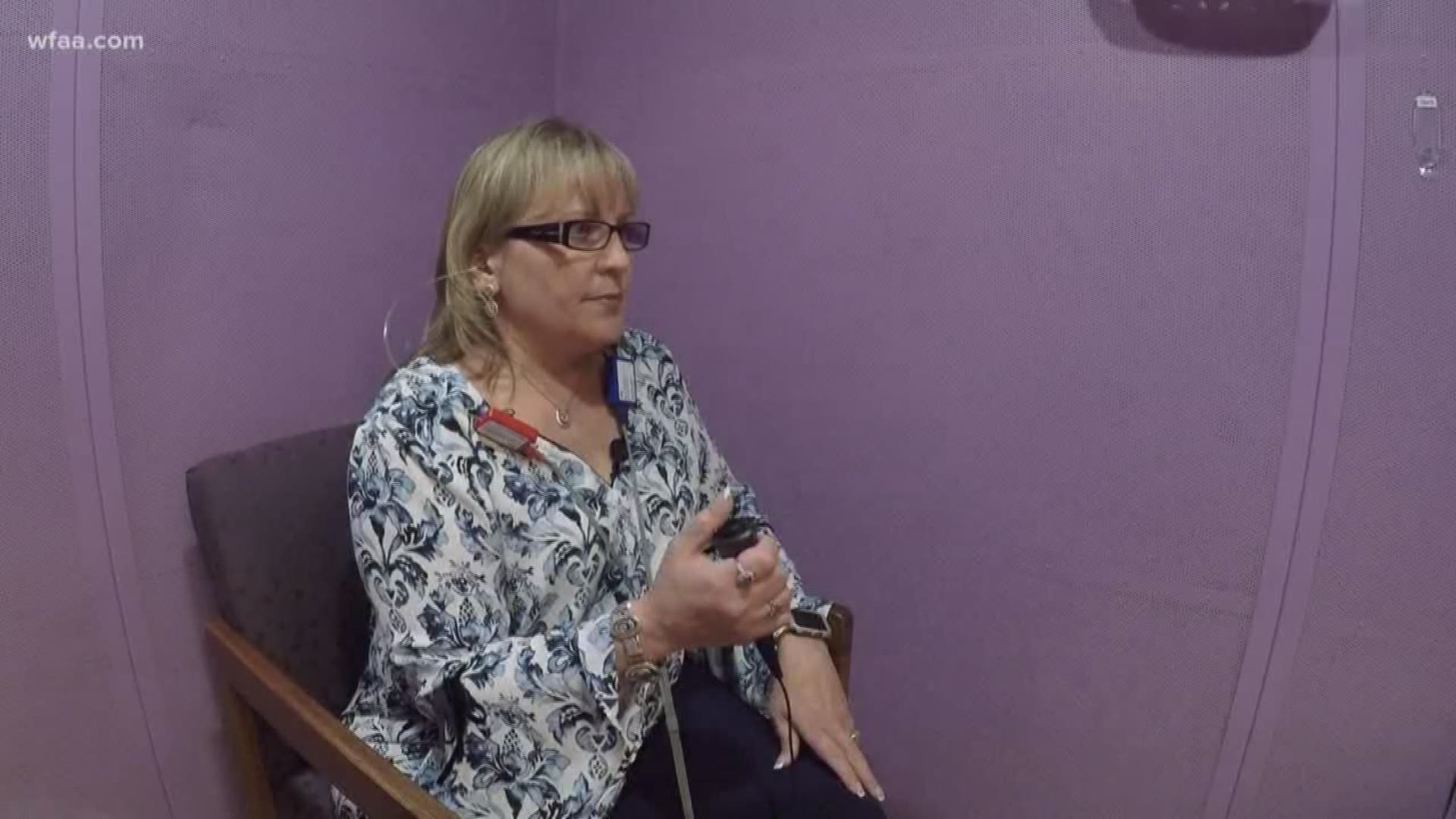Tina Myers is a busy mom of 5. She’s also a breast cancer survivor.
“They told me I had cancer which was very devastating because no one in my family ever had cancer,” said Myers, 46, recalling her diagnosis in 2015.
Focusing on surviving, Myers’ treatment included surgery, chemotherapy and radiation. What it didn’t include was a baseline hearing test. Two years later, Myers started noticing major changes.
“My kids were calling my name multiple times,” Myers said about her digression. “Or-- mom did you hear the doorbell? Nope.”
She also experienced problems hearing at work.
“People would talk to me when I went back to work and I couldn’t quite get what they were saying,” Myers said.
Myers never had problems hearing before cancer treatment. She believes two years of chemotherapy drugs did serious damage.
"We know that those are toxic to the ears," said Audiologist Marilyn Heinrichs about some chemotherapy drugs.
The problem seems to be more widespread than people realize.
Researchers at Oregon Health and Science University tested the hearing of 67 patients, ages 8 months to 23 years following chemotherapy; 61 of them had hearing loss.
Heinrichs and her colleagues at Advanced Hearing Center in Plano explained that the link between some medicines and hearing loss is not a new discovery but new attention is being paid to it. As more people are surviving cancer, their personal focus shifts to quality of life during and after treatment.
Heinrichs performs hearing tests on a lot of cancer survivors who have difficulty with hearing, chirping or ringing in the ears.
“You can't really restore that because it's actually damage to the nerve or the hair cells in the part of our ear that we hear with," Dr. Heinrichs said.
Using ultra high frequencies, audiologists can monitor changes in hearing which Heinrichs said can appear as quickly as 24 hours after one round of chemo.
"After my first treatment on May 11th, I had immediately ringing in my ears," said Jennifer Bobo, a breast cancer patient who also happens to be an audiologist.
Bobo, who just completed her second round of chemo following surgery, is fighting relentless ringing in her ears.
“Imagine sitting outside on a nice summer evening and you hear the crickets run out there. It's just constantly that sound in the background,” Bobo described.
With hearing aids, Myers can communicate with her kids again.
"I would say eye opening, but it's been ear opening,” laughed Myers, who is still on daily cancer medication because the disease has spread to her bones. So far, the drugs Myers takes now are not affecting her hearing, allowing her to be fully present with her family.
Heinrichs said that most insurance does cover baseline hearing tests. She added that in order to prove potential or likely causation linking chemotherapy drugs to hearing loss, a baseline test is necessary for comparison. If you or someone you know receives a cancer diagnosis, talk to your oncologist about connecting with an audiologist for a baseline hearing test.







